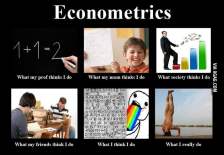from David Ruccio “Formal” freedom is the freedom of choice WITHIN the coordinates of the existing power relations, while “actual” freedom designates the site of an intervention which undermines these very coordinates. — Slavoj Žižek, On Belief The novel coronavirus pandemic has demonstrated how shallow and restricted the notion of formal freedom is in the United States. After years of pretending that private healthcare and health insurance expanded the freedom...
Read More »Another financial rescue by the US Fed
from C. P. Chandrasekhar While forecasters grapple with predictions on the likely contraction in the world’s leading economies, big finance, especially in the US, seems to be prematurely preparing for its next celebration. Recall that while the post-2008 Great Recession was precipitated by the financial collapse triggered by unbridled speculation in financial markets, the subsequent ‘recovery’ from the crisis saved and rewarded finance, but left the real economy limping and workers and...
Read More »Social science — a plaidoyer
from Lars Syll One of the most important tasks of social sciences is to explain the events, processes, and structures that take place and act in society. But the researcher cannot stop at this. As a consequence of the relations and connections that the researcher finds, a will and demand arise for critical reflection on the findings. To show that unemployment depends on rigid social institutions or adaptations to European economic aspirations to integration, for instance, constitutes at...
Read More »Bagehot’s engaging naiveté
from Asad Zaman Chapter 2 of Goodhart’s “Evolution of Central Banks” cites in detail several arguments made by Bagehot (pronounce Badge-it) in favor of a free banking system without a Central Bank. After listing them, he notes that Bagehot is “engagingly naïve”, as a gentle critique. It is astonishing that a hard-nosed practical financial analyst like Bagehot would indulge in such visionary daydreams about a “free market” system. This testifies to the power of ideology to blind one to the...
Read More »Open thread June 16, 2020
Sudan to be used as guinea pig for cash abolition, universal basic income and total surveillance
from Norbert Häring Sudan has a transitional government that depends on the goodwill of the USA. This is an opportunity to use the country for the largest field trial to date, to put an entire population on the digital leash through cash abolition and a universal basic income. For several years now, the World Bank, Better Than Cash Alliance and various UN organizations have been massively promoting and advertising the purely digital transmission of financial aid for the needy in poor...
Read More »Economics education in a post-pandemic world
from Maria Alejandra Madi Ten years after the 2008 global financial crisis, the commodification of health, the spread of fiscal austerity programmes, deep social marginalization and climate change challenges revealed that health issues are “vital matters” that economists should address. Moreover, the outcomes of the coronavirus crisis call for a reflection on the contemporary threatens related to individual freedom, control on individuals and insecurity in social interrelations. Indeed,...
Read More »The illusion of precision
from Ikonoclast (originally posted as a comment) A policeman puts his knee on the neck of a black man in Minneapolis for 8 minutes 46 seconds. A statue to a slave trader falls down in Bristol. This recalls the butterfly effect of Chaos theory. There is no humanly constructed model which would allow one to predict the second specific event from the first specific event. A broader probabilistic model might make predictions of protests and demonstrations after the first event, especially...
Read More »Econometric self-deceptions
from Lars Syll One may wonder how much calibration adds to the knowledge of economic structures and the deep parameters involved … First, few ‘deep parameters’ have been established at all … Second, even where estimates are available from micro-econometric investigations, they cannot be automatically imported into aggregated general equilibrium models … Third, calibration hardly contributes to growth of knowledge about ‘deep parameters’. These deep parameters are confronted with a novel...
Read More » Heterodox
Heterodox



